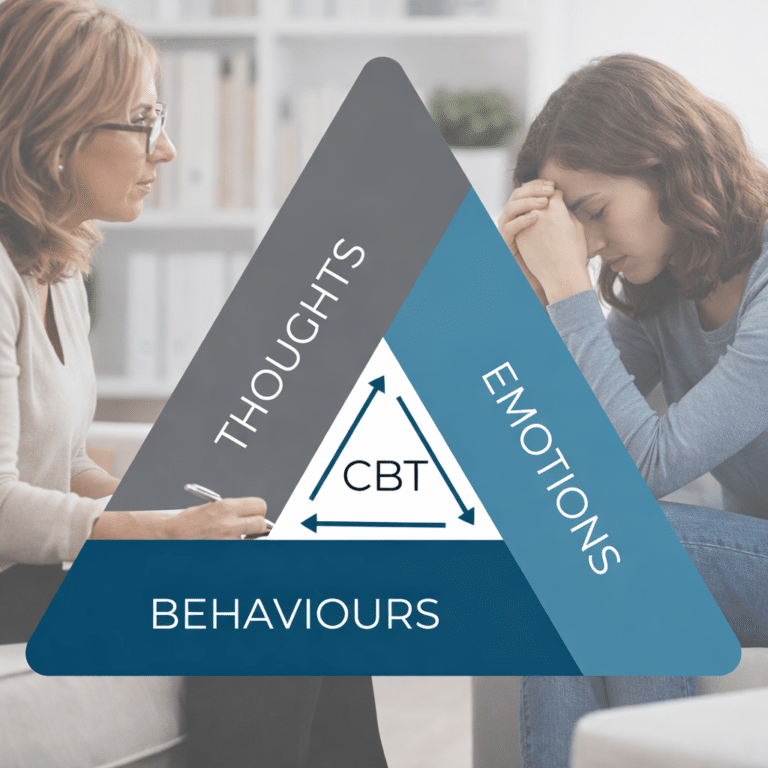
Self-esteem may sound like a simple concept, but in the world of mental health, it plays a powerful and often underestimated role. It’s more than confidence or how you carry yourself—it reflects how you see your worth, your capabilities, and your right to be treated with kindness and respect. When self-esteem is low, it can quietly affect many areas of life—from your relationships and motivation to your ability to cope with stress or setbacks.
What is Self-Esteem?
Self-esteem refers to the beliefs and feelings you hold about yourself. It’s how you evaluate your own value—whether you see yourself as worthy, lovable, competent, or enough. This sense of self can be shaped by early life experiences, relationships, culture, social expectations, and even internal thought patterns developed over time.
Some people develop a strong internal foundation of self-esteem, while others may struggle with feelings of inadequacy or self-doubt. It’s important to remember that self-esteem isn’t fixed. Just like mental health, it can change and grow with intentional care.

The Connection Between Self-Esteem and Mental Health
When self-esteem is low, it doesn’t just affect how you feel about yourself—it can deeply influence your mental health. Research consistently shows that low self-esteem is linked to a higher risk of depression, anxiety, and emotional distress. In fact, a large meta-analysis published in the Journal of Personality and Social Psychology found that low self-esteem predicted future symptoms of depression and anxiety across diverse populations.
Low self-worth can also create a cycle that’s hard to break. If you don’t believe you deserve good things, you may unknowingly isolate yourself, avoid opportunities, or settle for relationships that reinforce negative beliefs. Over time, this can erode your resilience and make everyday challenges feel overwhelming.
On the other hand, people with healthier self-esteem tend to cope better with stress, bounce back more easily from setbacks, and form stronger, more fulfilling connections. That doesn’t mean they never struggle—but they’re more likely to feel grounded and supported through those challenges.
Signs Your Self-Esteem May Be Impacting Your Mental Health
Low self-esteem doesn’t always look the same in everyone. But there are some signs that might suggest it’s playing a role in your mental well-being:
- Constant self-criticism – You might find it difficult to accept compliments or feel like nothing you do is ever good enough.
- Fear of failure – You might avoid trying new things because you assume you’ll fail or don’t believe you’re capable.
- Perfectionism – You may set unrealistic expectations for yourself and feel disappointed or ashamed when you can’t meet them.
- People-pleasing – You might prioritize others’ needs over your own, even when it hurts you emotionally.
- Social withdrawal – If you often isolate yourself because you feel you’re not “good enough” to be around others, it could be related to low self-esteem.
These patterns can be subtle but powerful. And recognizing them is an important step toward change.
How to Rebuild Self-Esteem in Daily Life

Rebuilding self-esteem is a process, not a one-time fix. But just like tending to a garden, even small efforts each day can lead to meaningful growth over time.
- Practice self-compassion – Start by speaking to yourself the way you would speak to a close friend. When you notice harsh self-talk, gently challenge it. Ask yourself: Is this thought really true? Is it helping me? What would I say to someone I love in this situation?
- Keep a strengths journal – At the end of each day, write down one thing you did well—even something small. Over time, this helps shift your focus from flaws to progress.
- Set realistic, achievable goals – Break bigger goals into small steps that feel manageable. Each completed step is a quiet reminder that you are capable.
- Move your body – Engaging in physical activity—even a short daily walk—has been shown to improve self-esteem and reduce anxiety. It’s not about changing how you look; it’s about reconnecting with your body in a kind, respectful way.
- Surround yourself with supportive people – Build a circle of individuals who uplift you and remind you of your value, especially during times when you forget it yourself.
- Limit social comparison – Spending time on social media can distort your self-image. Try curating your feed, unfollowing accounts that trigger comparison, and reminding yourself that what you’re seeing is often a highlight reel—not the full story.
- Consider therapy or counseling – Sometimes, low self-esteem is rooted in past trauma or deep emotional wounds. Therapy, especially approaches like cognitive behavioral therapy (CBT) or compassion-focused therapy, can help you explore these patterns and build healthier self-perceptions.
Final Thoughts
Low self-esteem can quietly influence your mood, your decisions, and how you relate to others. But it’s not something you’re stuck with. With gentle attention and consistent support, it’s possible to reshape the way you see yourself—and in doing so, improve your mental health, your relationships, and your overall quality of life.
At Animo Sano Psychiatry, we believe that every person deserves to feel worthy, heard, and empowered. If you’re ready to take the next step in your mental health journey, we’re here to support you with compassionate care and personalized treatment.
Responsibly edited by AI
Other Blog Posts in
Animo Sano Psychiatry is open for patients in North Carolina, Georgia and Tennessee. If you’d like to schedule an appointment, please contact us.
Get Access to Behavioral Health Care
Let’s take your first step towards. Press the button to get started. We’ll be back to you as soon as possible.ecovery, together.





